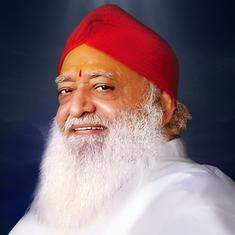Electoral bonds: Day after SC criticism, SBI submits data to Election Commission
Unidentified sources from the poll panel, however, reportedly said that uploading the data by the deadline of March 15 was likely to be a challenge.

The State Bank of India on Tuesday submitted data on electoral bonds to the Election Commission in compliance with a Supreme Court order passed on February 15.
However, Law Today quoted unidentified Election Commission sources as saying that the data had been submitted in raw format, and that uploading it by the March 15 deadline set by the Supreme Court was likely to be a challenge.
The development came a day after the court told the government-owned bank to disclose the details to the poll body by Tuesday. A five-judge bench told the bank that it would be in contempt of the court if it did not comply with the order.
The top court also ordered the Election Commission to compile the information and publish it on its website by March 15.
The Supreme Court had on February 15 directed the State Bank of India to issue details of the political parties that received electoral bonds from April 12, 2019, and submit them to the Election Commission by March 6. The court had said that the electoral bonds could lead to quid pro quo arrangements between donors and political parties when it struck down the scheme as unconstitutional.
A day after the State Bank of India’s March 6 deadline lapsed, the non-governmental organisation Association for Democratic Reforms filed a contempt petition before the court.
The contempt petition accused the State Bank of India of “deliberate disobedience and defiance” of the court’s February 15 order. The petition challenged the bank’s request for an extension of the deadline, calling it “mala fide”.
The court’s February 15 judgement also came in response to petitions by the Association for Democratic Reforms and the civil society group Common Cause.
Electoral bonds were monetary instruments that citizens or corporate groups could buy from the State Bank of India and give to a political party, which could then redeem them.
The entire process was anonymous since buyers were not required to declare their purchase of these interest-free bonds and political parties did not need to show the source of the money. However, the Centre could access information about these donors as it controls the State Bank of India.
The electoral bonds scheme was introduced by the Bharatiya Janata Party-led Union government in 2018.
Withhold electoral bonds verdict: SC Bar Association chief to president
The Supreme Court Bar Association president Adish Aggarwala on Tuesday urged President Droupadi Murmu to not give effect to the top court’s electoral bonds verdict by seeking a presidential reference against it, reported Live Law.
Agarwala also asked for the judgement to be put on hold till the matter is heard once again by the court.
“The Supreme Court should not allow itself to deliver judgments that would create constitutional stalemate, undermine the majesty of the Parliament of India, the collective wisdom of the people's representatives gathered in the Parliament and create a question mark over the very democratic functioning of political parties themselves,” the letter said.
He also added that revealing the names of corporates who had contributed to different political parties would leave them vulnerable for “victimisation”, reported PTI.
“The possibility of them being singled out by those parties that had received less contribution from them, and harassed cannot be ruled out if the names of corporates and their quantum of contributions to various parties are revealed,” he said. “This will be reneging on the promise given to them while accepting their voluntary contributions.”
Article 143 of the Constitution confers advisory jurisdiction on the Supreme Court and empowers the President to consult the top court. The president can ask the top court to reconsider a judgement if she feels that a question of law or fact of public importance arises from it.









